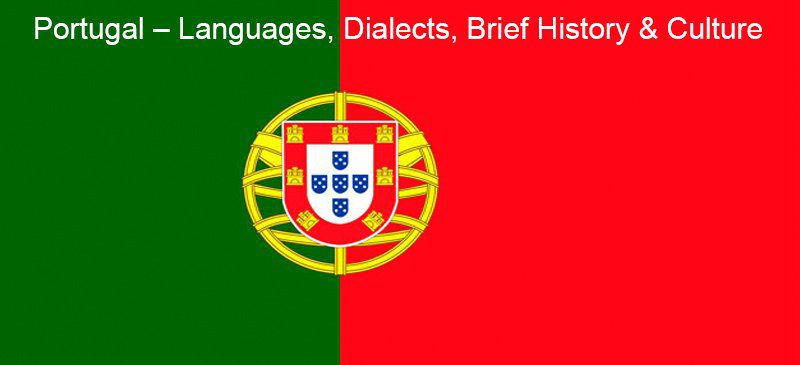
Having roots in the north-western part of Spain and Northern Portugal, Portuguese is the second most widely spoken romance language after Spanish. It is mostly Galician made up of some variants of ordinary Latin and several native dialects. Besides Portugal and Brazil, Portuguese is extensively spoken in some parts of the USA and in Africa.
One notable thing about this language is that the Brazilian variety is different from the European version. Consequently, anyone looking for English to Portuguese translation should be careful to hire a professional service that can fluently and accurately translate either of the versions into a chosen target language.
The following 7 historical, Linguistic, and socio-cultural facts make Portugal unique.
- A land with a Rich Historical Heritage of Conquests and Explorations
Historically, Portugal’s past is checkered with a rich heritage of occupations, invasions, conquests, and explorations. At various periods during prehistoric times, the territory was variously settled by several Germanic tribes, the Carthaginians, Moors, Phoenicians, and the Celts. Later, it became part of the Muslim Spanish before turning to Christianity with the declaration of independence by King Alfonso I in 1139
- The Spirit of Seafaring Adventure
The Portuguese are famous for seafaring activities with famous personalities like Vasco da Gama and Bartolomeu Dias having led great exploratory expeditions to far-flung places like India, Africa, and Latin America.
For most of its early periods, Portugal was either under occupation or the rule of Monarchies; the last of which came to an end when the great revolution happened in 1910. Perhaps due to foreign rule and several wars, the Portuguese people form the largest population of European immigrants after the Irish.
- The Social Conventions and Culture of Portugal
Catholicism is the common religion in Portugal though most people who profess Christianity hardly take the Sacrament or attend Mass. 85% of the population is made up of Christians while the rest make up the protestant sects, the Jews, Muslims, Agnostics, Atheists, etc.
Social conventions are woven from a variety of folklore, traditional cultures, and modern practices. In small towns and villages, the dominant form of entertainment is the ronchosfolcloricos; folklore greatly enhanced by song and dance. But in contrast, modern art and drama are enjoyed in major urban centers.
- Festivities, Revelry & Hospitality
In terms of hospitality, the people of Portugal are warm, welcoming, and friendly. So, if you intend to go to the place, learning Portuguese online would be a wise move to help you have a wholesome experience while visiting. The citizens love revelry, arts, music, films, and exhibitions.
Outdoor life is popular during the hot summers, and the festivals are characterized by thrilling experiences such as bullfighting, football, or traditional religious events. Tourists wishing to integrate well into the culture and festivities find it handy to engage the services of a skilled Portuguese English Interpreter to take full advantage of the fanfares and gaiety.
- Languages in Portugal
Contrary to common misconceptions, the Portuguese language is not spoken in Portugal alone nor is it the only language used in the country. There are several other dialects like Spanish, French, English, German, Czech, and Italian that are in common use.
Although Portuguese is the official language, it exists in almost 10 different dialects. Worldwide, it is the 6th popularly used language while in the southern hemisphere, it is the most used form of official communication. However, many people who use it speak it as their mother tongue.
- English Speaking as a Second Language.
Speaking English in the country for formal purposes comes second. Its use has rapidly expanded in popular tourist destinations like Lisbon, and it is also popular among elites or professionals. The widespread use of the English language is linked to the modest size of the country, and it is responsible for encouraging external influences brought by American and English films. In schools, it is taught as a second language
- The Simplicity of Learning Portuguese
Learning this language is not difficult, and fluency in it can open access to over 300 million people in places such as Angola, Brazil, or Mozambique. Although its interchangeability with Spanish is possible, the way it is pronounced bears many similarities with the Slavic languages of Eastern Europe.
Native or proficient English speakers encounter very little difficulty in mastering the language despite the glaring disparities in the sentence structures and grammar. However, words and usage are simple to pick up because both languages have the same Latin roots. Therefore, the vocabularies of both languages share many common words.
Before making a trip to Portugal, it is highly recommended that you learn just the basic vocabulary and grammar to help you easily get along in the country. Are you ready to start your lessons?
